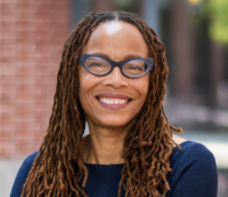
The United States should replace its current family surveillance system with one that improves children’s welfare.
The U.S. child welfare system is a multi-billion-dollar apparatus designed to regulate and police families, not to protect children.
In my recently published book, Torn Apart: How the Child Welfare System Destroys Black Families—and How Abolition Can Build a Safer World, I argue that the child welfare system relies on terrorizing families. By taking away children or weaponizing them with the threat of removal, the child welfare system imposes intensive surveillance and regulation on families.
Black and Native children are grossly overrepresented in the system. According to a 2014 study, about 15 percent of Native children and 12 percent of Black children can expect to enter foster care before their 18th birthday. The rate for white children, about 1 in 20, is much lower, reflecting America’s racial hierarchy, but still incredibly high.
Family surveillance extends far beyond the numbers of children placed in foster care, the measure commonly noted to gauge the system’s scope and impact. Child protective services (CPS) agencies investigate the families of nearly 3.5 million children every year.
More than half of Black children will be subjected to investigation at some point before they reach age 18. Moreover, child welfare agency involvement is concentrated in segregated and impoverished Black neighborhoods, so all children residing in these neighborhoods experience the impact of intensive state supervision, regardless of whether they have been separated from their parents.
The origins of the U.S. child welfare system lie in the forcible separation of enslaved families, the control of emancipated Black children as apprentices to former white enslavers, the mass removal of Indigenous children to be placed in boarding schools as an instrument of tribal genocide, and the shipping of European immigrant children on orphan trains to work on distant farms.
The whole point of the child welfare system has always been to regulate economically and racially marginalized families. Their subordinated status makes them vulnerable to state intervention because of the way child maltreatment is defined to blame families for the harms to children caused by societal inequities.
Family policing helps to regulate families and keep them in their subordinated status by disrupting their relationships and communities. And, more broadly, family policing implements an approach to child welfare that buttresses an unequal social structure by diverting attention away from the harms these structures cause.
Identifying children as at risk for abuse or neglect gives caseworkers the authority to probe into and supervise every aspect of their families’ lives. Under federal law, every state must identify “mandated reporters”—people who work in professions that put them in contact with children, such as teachers, health care providers, social services staff, and daycare workers. Federal law calls for states to mandate that, under certain circumstances, these professionals report suspected child abuse and neglect to government authorities.
Family policing relies on an expansive network of information sharing that spans the school, health care, public assistance, and law enforcement systems. This confluence of social services and child protective services directs state surveillance against poor and low-income families, especially Black families, who are more likely to rely on public service providers. CPS then treats these reports like accusations to investigate, not requests for help.
Mandated reporting, therefore, drives many family caregivers from the very people who are most equipped to support them. It deters families from seeking needed assistance and weakens the capacity of teachers, doctors, and social service workers to nurture children’s well-being. Providing aid to families within a threatening and punitive system ruins the opportunity for schools, health care clinics, and social programs to be community-based resources where families can find non-coercive help with meeting their needs.
Because child protection is classified as part of the civil legal system, agencies and courts in effect have created a child welfare exception to the constitutional provisions that pertain to police investigations. For example, although the Fourth Amendment applies to government maltreatment investigations, caseworkers routinely search homes without a warrant. They treat protecting the privacy of family members as a risk to children, and therefore, an excuse to waive constitutional restraints.
Yet, compared with police stops and arrests, child protection investigations dig far deeper into the private lives of suspects. Caseworkers can make multiple unannounced home visits at any time of day or night, interrogate all household members, force children to disrobe, do criminal background checks, and request personal information from teachers, hospitals, therapists, and other service providers.
The state’s vast family surveillance apparatus made up of caseworkers, police officers, and mandatory reporters has been expanding to even more alarming levels in recent years. State CPS authorities are increasingly employing big databases, computer programming, and artificial intelligence to monitor families and make automated risk assessments and decisions about intervening in them. Like predictive policing, these computerized risk assessment models used by child welfare departments rely on structurally biased data and programming, building race and class discrimination into their outputs.
Given the child welfare system’s foundational logic centered on investigating, supervising, and disrupting politically marginalized families, the system has absorbed efforts to mitigate its abuses and continued to operate as a system of family regulation.
Instead of continued reforms within the existing logic and apparatus, the United States needs a total paradigm shift in the state’s relationship to families—a complete end to family policing by dismantling the current system and replacing it with a reimagined approach that truly supports families and improves children’s welfare.
This essay is part of a seven-part series titled Race and Regulation.




